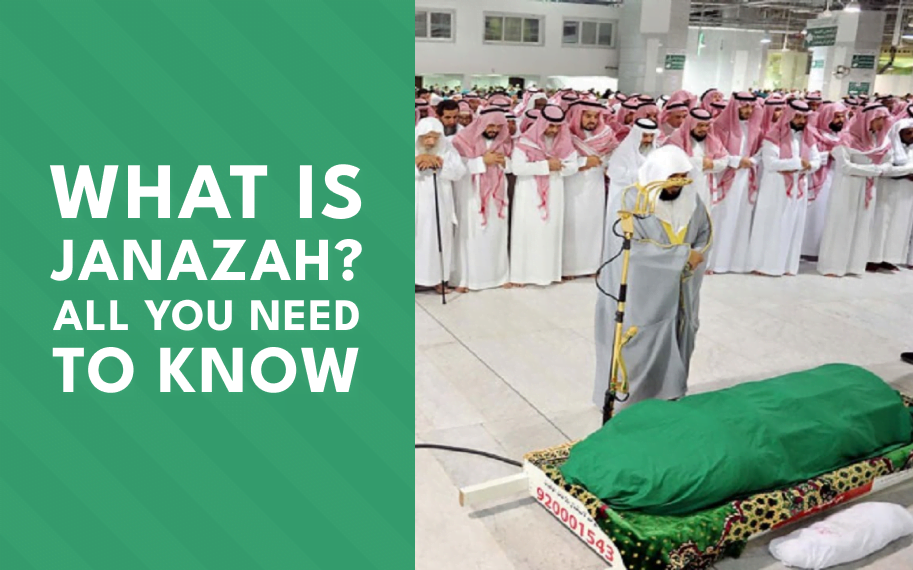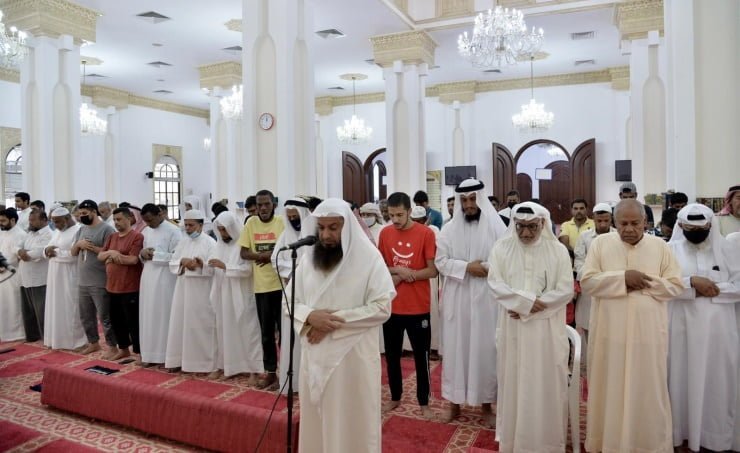
In Islam, the journey of life is marked by various rites and rituals, each holding profound significance. One such crucial and solemn practice is the Janazah, the funeral prayer offered for a deceased Muslim. This blog delves into the meaning, rituals, and importance of Janazah in the context of Islamic traditions.
Table of Contents
What is Janazah?
Janazah, derived from Arabic, translates to “funeral” or “burial” in English. In Islamic terms, Janazah refers specifically to the funeral prayer conducted for a deceased Muslim. It is considered a communal obligation (Fard Kifayah), meaning that if a sufficient number of community members fulfill this duty, the rest are relieved of the obligation.
Ghusl (Ritual Washing)
The initial step in Janazah preparations involves Ghusl, the ceremonial washing of the deceased’s body. This purification practice is administered by individuals well-versed in Islamic customs, cleansing the body with water and perfumes, symbolizing spiritual purification before departing this world.
Kafan (Shrouding)
After Ghusl, the deceased is wrapped in a simple white cloth known as Kafan. This act signifies equality among individuals, regardless of status or wealth, emphasizing the spiritual essence over worldly possessions.
Mosque or Home Preparation
Whether in a mosque or the deceased person’s home, the space for the Janazah prayer is readied. Cleaning and organizing create an environment that respects the solemnity of the occasion, accommodating mourners and facilitating the funeral proceedings. It allows for expressions of grief and prayers with reverence.
What to recite in the Janazah prayer?
In Salat-e-Janazah, there are two most important things to recite. These are:
- Repeating takbeers four times.
- Qiyam that occurred during Salaatul Janazah in a standing position.
Sunnah in Janazah Nimaz:
- Parsing Allah (Durrod, Hamd and Thana)
- Send Allah’s blessing to the Holy Prophet SAW
- Dua for Dead person
How to perform the Janazah prayer?
Performing the Janazah (funeral) prayer involves several steps:
- Intention (Niyyah): Form the intention to perform the Janazah prayer.
- Stand and Face the Qibla: Position yourself facing the Qibla (the direction of the Kaaba in Mecca).
- Raise Hands and Begin Takbir: Raise your hands and say “Allahu Akbar” (God is the Greatest) to begin the prayer.
- Recite Al-Fatihah: After the first Takbir, silently recite Surah Al-Fatihah.
- Second Takbir: Raise your hands and say “Allahu Akbar” for the second time.
- Invoke Blessings Upon the Prophet: Silently recite blessings upon Prophet Muhammad (peace be upon him).
- Third Takbir: Raise your hands and say “Allahu Akbar” for the third time.
- Make Supplication (Dua) for the Deceased: Offer a supplication for the forgiveness and mercy of the deceased. You can use phrases like, “Allahummaghfir lihayyina wa mayyitina” (O Allah, forgive our living and our dead).
- Fourth Takbir: Raise your hands and say “Allahu Akbar” for the fourth time.
- Final Salam: Turn your head to the right and say “Assalamu Alaikum wa Rahmatullah” (Peace and mercy of Allah be upon you) to conclude the prayer.
The Janazah prayer is usually performed while standing, and there are no bowing or prostration movements in this particular prayer. It’s a simple and brief supplication for the deceased.
What are Ahkams of Janazah Nimaz?
To ensure the correctness of Janazah namaz (funeral prayer), it’s crucial to debunk certain myths:
- Shoes and Cleanliness: While performing Janazah, ensure cleanliness by not wearing shoes. Both your shoes and the ground beneath should be clean during the prayer.
- Standing Surface: You have the option to stand on a handkerchief, but the cleanliness of the ground is essential if you choose not to.
- Presence of the Deceased: It is recommended that the dead body be present during the Janazah prayer. Performing it in the absence of the deceased is not acceptable.
- Formation of Rows: Organize at least three rows, considering the number of attendees. For instance, if seven people are present, the first row should have three persons, the second two, and the last one.
- Completing Takbeers: Those who miss their takbeers (Maqsood) should complete them after the Imam performs salam. If shoulders are given during Janazah, Maqsood can recite takbeers without supplications.
- Janazah for Children: If a child’s full body comes out during birth, perform Gusul, Kafan, and takbeers. If only the head comes out crying but the child dies with the chest still inside, there is no Janazah. However, if the child completes coming out and then dies, perform all Janazah rituals.
Importance of Janazah in the Muslim Community
The Janazah, or funeral prayer, holds immense significance in the Muslim community, reflecting deep-rooted beliefs and practices:
- Spiritual Duty: Offering Janazah prayer is considered a communal obligation (Fard Kifayah) in Islam, ensuring that the deceased is granted a dignified farewell.
- Respecting the Deceased: It’s a means to honor and show respect to the departed soul, acknowledging their transition from this worldly life to the hereafter.
- Community Solidarity: Janazah prayer unites the community in times of loss, fostering a sense of solidarity, empathy, and support for the bereaved family.
- Supplication and Mercy: The prayer includes heartfelt supplications (dua) seeking forgiveness, mercy, and blessings for the deceased, aiding their journey into the afterlife.
- Reminder of Mortality: Attending Janazah prayers serves as a reminder of the fleeting nature of life, prompting reflection on one’s own mortality and the importance of good deeds.
- Earning Rewards: Participating in Janazah prayers is believed to yield immense rewards (sawab) for both the deceased and those who offer prayers, as it is seen as an act of kindness and compassion.
- Islamic Tradition: It upholds a significant tradition established by Prophet Muhammad (peace be upon him), setting the precedent for Muslims to perform this essential ritual.
The Janazah prayer emphasizes the interconnectedness of the Muslim community and the collective responsibility to ensure a proper send-off for the departed soul.

Conclusion
Janazah, the funeral rites and customs in Islam, holds immense importance within the Muslim community. The preparation, Janazah prayer, burial process, and mourning customs all contribute to honoring the deceased and providing solace to the bereaved. Janazah serves as a reminder of the transient nature of life, the importance of preparing for the hereafter, and the unity and support within the Muslim community during times of loss. You can get more details about Janazah Namaz from Idara Al Furqan Academy.
FAQs
- When should the Janazah prayer be offered?
- Ideally, Janazah prayers should be offered as soon as possible after the individual’s death, typically before the burial.
- Is Janazah obligatory?
- Janazah prayers are considered a communal obligation (Fard Kifayah) in Islam. If some individuals from the community perform it, the obligation is lifted from others.
- Can non-Muslims attend Janazah prayers?
- Generally, non-Muslims are welcome to attend as observers out of respect, but the prayer itself is for Muslims.
- Is it obligatory to offer Janazah for every deceased person?
- It is recommended to offer Janazah for every deceased Muslim. However, in certain cases, like a person who committed apostasy or a deceased child who didn’t take a breath, Janazah might not be required.
- How many times should the Takbirs be said in Janazah?
- The Janazah prayer consists of four Takbirs, starting with the initial Takbir and followed by three additional Takbirs in succession before the concluding Salam.
- Can Janazah be offered anywhere?
- Janazah prayers can be performed in a mosque, a designated prayer area, or even outdoors, but they should be performed in a clean space.
- Is there a specific time for Janazah’s prayers?
- Janazah prayers can be offered at any time except during the times when regular prayers are prohibited (i.e., at sunrise, at noon, and at sunset).
- Who can attend the Janazah prayer?
- Janazah prayers are open to all Muslims, regardless of age, gender, or social status. It’s encouraged for the community to attend and offer prayers.
- What is the significance of offering Janazah prayers?
- Offering Janazah prayers holds immense significance as it’s a means to seek forgiveness, mercy, and blessings for the deceased and to fulfill a communal obligation within Islam.
Read Also
Islamic Finance – Principles, Practices, and Impact
Enlightening Life Through Quran and Sunnah
How to Perform Umrah – Complete Step By Step Guide
How to Perform Hajj – A Comprehensive Guide
How to Spend Your Ramadan – A Spiritual Journey
Proper Age for a Child to Start Learning the Quran
How to Memorize the Quran Easily – Tips & Techniques
Online Tajweed Classes – Learn Quran Online with Tajweed
What Breaks Wudu? 9 Key Events Every Muslim Should Know

